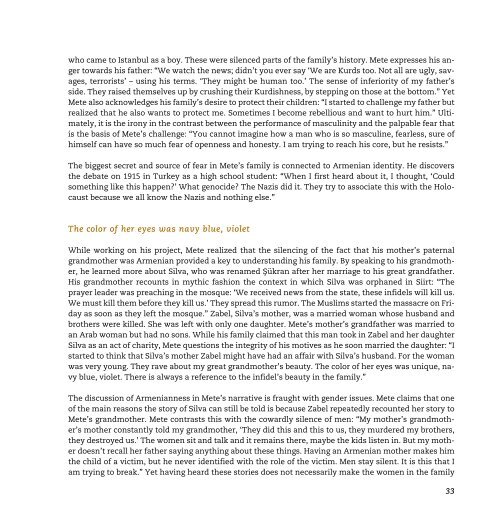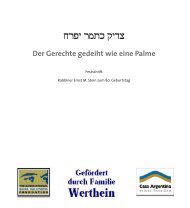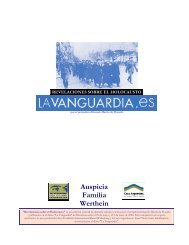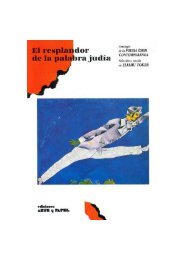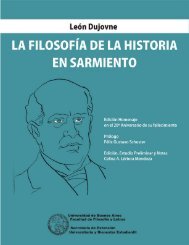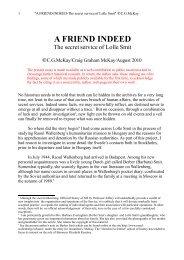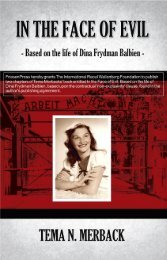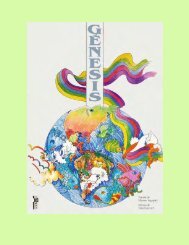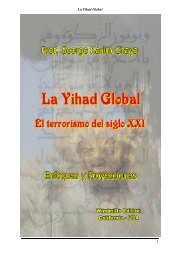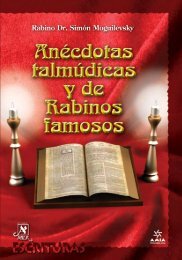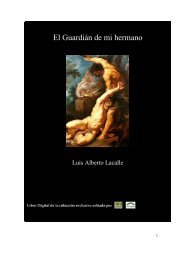Speaking to One Another - The International Raoul Wallenberg ...
Speaking to One Another - The International Raoul Wallenberg ...
Speaking to One Another - The International Raoul Wallenberg ...
- No tags were found...
You also want an ePaper? Increase the reach of your titles
YUMPU automatically turns print PDFs into web optimized ePapers that Google loves.
who came <strong>to</strong> Istanbul as a boy. <strong>The</strong>se were silenced parts of the family’s his<strong>to</strong>ry. Mete expresses his anger<strong>to</strong>wards his father: “We watch the news; didn’t you ever say ‘We are Kurds <strong>to</strong>o. Not all are ugly, savages,terrorists’ – using his terms. ‘<strong>The</strong>y might be human <strong>to</strong>o.’ <strong>The</strong> sense of inferiority of my father’sside. <strong>The</strong>y raised themselves up by crushing their Kurdishness, by stepping on those at the bot<strong>to</strong>m.” YetMete also acknowledges his family’s desire <strong>to</strong> protect their children: “I started <strong>to</strong> challenge my father butrealized that he also wants <strong>to</strong> protect me. Sometimes I become rebellious and want <strong>to</strong> hurt him.” Ultimately,it is the irony in the contrast between the performance of masculinity and the palpable fear thatis the basis of Mete’s challenge: “You cannot imagine how a man who is so masculine, fearless, sure ofhimself can have so much fear of openness and honesty. I am trying <strong>to</strong> reach his core, but he resists.”<strong>The</strong> biggest secret and source of fear in Mete’s family is connected <strong>to</strong> Armenian identity. He discoversthe debate on 1915 in Turkey as a high school student: “When I first heard about it, I thought, ‘Couldsomething like this happen?’ What genocide? <strong>The</strong> Nazis did it. <strong>The</strong>y try <strong>to</strong> associate this with the Holocaustbecause we all know the Nazis and nothing else.”<strong>The</strong> color of her eyes was navy blue, violetWhile working on his project, Mete realized that the silencing of the fact that his mother’s paternalgrandmother was Armenian provided a key <strong>to</strong> understanding his family. By speaking <strong>to</strong> his grandmother,he learned more about Silva, who was renamed Şükran after her marriage <strong>to</strong> his great grandfather.His grandmother recounts in mythic fashion the context in which Silva was orphaned in Siirt: “<strong>The</strong>prayer leader was preaching in the mosque: ‘We received news from the state, these infidels will kill us.We must kill them before they kill us.’ <strong>The</strong>y spread this rumor. <strong>The</strong> Muslims started the massacre on Fridayas soon as they left the mosque.” Zabel, Silva’s mother, was a married woman whose husband andbrothers were killed. She was left with only one daughter. Mete’s mother’s grandfather was married <strong>to</strong>an Arab woman but had no sons. While his family claimed that this man <strong>to</strong>ok in Zabel and her daughterSilva as an act of charity, Mete questions the integrity of his motives as he soon married the daughter: “Istarted <strong>to</strong> think that Silva’s mother Zabel might have had an affair with Silva’s husband. For the womanwas very young. <strong>The</strong>y rave about my great grandmother’s beauty. <strong>The</strong> color of her eyes was unique, navyblue, violet. <strong>The</strong>re is always a reference <strong>to</strong> the infidel’s beauty in the family.”<strong>The</strong> discussion of Armenianness in Mete’s narrative is fraught with gender issues. Mete claims that oneof the main reasons the s<strong>to</strong>ry of Silva can still be <strong>to</strong>ld is because Zabel repeatedly recounted her s<strong>to</strong>ry <strong>to</strong>Mete’s grandmother. Mete contrasts this with the cowardly silence of men: “My mother’s grandmother’smother constantly <strong>to</strong>ld my grandmother, ‘<strong>The</strong>y did this and this <strong>to</strong> us, they murdered my brothers,they destroyed us.’ <strong>The</strong> women sit and talk and it remains there, maybe the kids listen in. But my motherdoesn’t recall her father saying anything about these things. Having an Armenian mother makes himthe child of a victim, but he never identified with the role of the victim. Men stay silent. It is this that Iam trying <strong>to</strong> break.” Yet having heard these s<strong>to</strong>ries does not necessarily make the women in the family33


